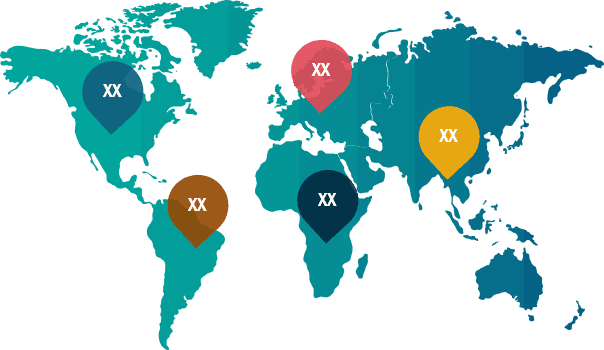美国 VRF 系统市场规模预计将从 2023 年的 20.8 亿美元增至 2031 年的 49.0 亿美元。预计 2023 年至 2031 年期间市场复合年增长率为 11.3%。将楼宇自动化与 VRF 系统配对可能会成为关键的市场趋势。
美国 VRF 系统市场分析
VRF 系统提供更高的能源效率。与需要打开和关闭的典型系统不同,VRF 系统可以在部分负荷下连续运行,从而大大提高整体运行效率。它可以配备热回收功能,允许利用从一个空间回收的热量来调节需要热量的场所中的其他地方,反之亦然,从而提高整个系统的效率。VRF 系统通常比同类系统更小、更轻,这使得它们更容易安装和移动,同时保持宝贵的天花板高度和地板面积。对能源效率和节约的迫切需求以及跨各个行业的多样化应用是推动美国 VRF 系统市场增长的主要因素。另一方面,较高的前期成本限制了市场的增长。此外,高端建筑项目的准备和与 VRF 系统相关的政府标准为市场创造了巨大的增长机会。楼宇自动化和 VRF 系统的集成很可能成为美国VRF 系统市场未来的一个重要趋势
美国 VRF 系统市场概览
VRF 即可变制冷剂流量系统,使用制冷剂进行加热和冷却。它是一种大型、高效的无管道HVAC系统。与分体式空调不同,VRF 系统可以在单个系统上支持许多室内单元,并可根据用户的独特需求进行定制。这些系统分为热回收系统或热泵系统。热回收 VRF 系统可以同时提供加热和冷却。此外,VRF 系统配备了多个可以单独调节的空气处理器;它们即使在满负荷的情况下也可以安静地运行。因此,这些系统适用于工业和住宅应用。
定制研究以满足您的需求
我们可以优化和定制标准产品无法满足的分析和范围。这种灵活性将帮助您获得业务规划和决策所需的准确信息。
美国 VRF 系统市场:战略洞察

复合年增长率(2023 - 2031)11.3%- 2023 年市场规模
20.8 亿美元 - 2031 年市场规模
49 亿美元

市场动态
- 迫切需要提高能源效率和节约能源
- 跨行业多样化应用
- 楼宇自动化与 VRF 系统配对
- 高端建设项目储备
- 明确的监管标准
关键人物
- 富士通将军
- 大金工业株式会社
- 开利全球公司
- LG 电子公司
- 松下控股公司
- 三星电子有限公司
- 三菱电机公司
- 伦诺克斯国际公司
- 特灵科技公司
- 罗伯特·博世有限公司
区域概况

- 我们
市场细分
 成分
成分- 室内机
- 室外机
- 控制系统及配件
 系统类型
系统类型- 热泵
- 热回收
- 仅冷却
 应用
应用- 商业的
- 工业的
- 住宅
- 示例 PDF 通过定性和定量分析展示了内容结构和信息的性质。
美国 VRF 系统市场驱动因素和机遇
跨行业多样化应用助力市场发展
VRF 系统的运行涉及压缩机的持续运转,并根据需要在每个区域中战略性地引导制冷剂。VRF 系统体积小、能效高、分区能力出色,可作为 HVAC 解决方案应用于各行各业。这些系统安装在酒店、办公楼、公寓楼、学校和大学、宿舍、数据中心、医院、制造厂、实验室设施、餐厅、大型零售空间以及任何需要同时在多个区域进行加热和冷却的地方。无论房间入住率如何,它们都以更安静的运行和个性化分区为居住者创造舒适的环境。集中控制系统有助于在客人抵达前或退房后调整酒店房间温度,从而节省大量成本。带有单个冷凝器的 VRF 系统可进一步节省能源。这些设备也可用作水源热泵,是配备冷却塔(提供水冷空气处理系统)的办公楼数据室的绝佳解决方案。水源冷凝机组非常紧凑,可以安装在占用地面空间最小的本地设备室中。
教育设施,从大型大学校园到小型小学,都面临着来自各种房间的特殊挑战。从小型行政办公室到中型教室再到大型体育馆,每个房间都需要各种 HVAC 设备。使用带有单个控制面板的 VRF 系统可以轻松满足所有这些不同的需求。例如,埃默里圣约瑟夫医院的 James C. Kennedy 健身中心安装了日立 VRF 系统,以利用其高能效。空气质量和温度管理规范在医院或临床环境中至关重要。空气会影响患者的康复。VRF 系统允许保持大厅和公共通道加热或处于环境温度,同时保持恢复室内的低温。因此,可以创建没有管道泄漏的区域,从而更有效地过滤空气并最大限度地减少交叉污染。根据能源部 (DOE) 的数据,一家普通医院的能源消耗量是其他商业建筑的 2.5 倍。医院采用 VRF 系统可以高效节能地维护医院内的安全和卫生,从而保障患者、工作人员和访客的健康。因此,各行各业的多样化应用推动了美国 VRF 系统市场的增长。
明确的监管标准为市场主体提供成长机会
美国政府一直在制定有关 VRF 系统的各种标准,包括生态设计法规、系统安装和节能标准。自 2012 年以来,VRF 热泵和空调制造商必须遵守 DOE 节能标准。2023 年 1 月,DOE 提议修订 VRF 多分体空调和 VRF 多分体系统热泵(统称为 VRF 多分体系统)的节能标准,这些标准依赖于新的冷却效率指标。2024 年 7 月,环境保护署 (EPA) 根据 AIM 法案提出了一项规则,允许使用全球变暖潜能值 (GWP) 为 700 或更高的 HFC 的 VRF 系统有一年的销售期。美国空调承包商协会 (ACCA) 正在监测这项拟议规则及其对承包商的潜在影响。2024 年 6 月,EPA 提议修订根据美国创新与制造法案颁布的技术转型法规。此举允许安装新的热泵 VRF 系统以及容量至少为 65,000 英热单位/小时的住宅和轻型商用空调系统,这些系统使用在美国制造或于 2026 年 1 月 1 日之前进口的部件,其有效期可延长一年,直至 2027 年 1 月 1 日。此类针对 VRF 系统的政府标准和法规为 VRF 系统市场参与者创造了大量新商机。
美国 VRF 系统市场报告细分分析
有助于得出美国 VRF 系统市场分析的关键部分是组件、系统类型和应用程序。
- 根据组件,市场分为室内机、室外机、控制系统和配件。室外机部分在 2023 年占据了市场主导地位。
- 就系统类型而言,市场分为热泵、热回收和仅冷却。热泵领域在 2023 年占据了市场主导地位。
- 根据应用,市场分为商业、工业和住宅。商业领域在 2023 年占据市场主导地位。
美国 VRF 系统市场份额分析(按国家/地区)
美国政府提供激励措施鼓励使用可再生资源,并推广有助于提高能源效率的做法。政府强调定期监测暖通空调系统的性能,以应对日益增长的全球变暖问题。标准化暖通空调系统及其组件(如VRF系统)的生产流程(即供应方)已大大降低了环境风险,并减轻了效率标准对需求方造成的负担。根据美国能源信息署的报告,预计到2050年,美国制冷度日数的变化将推动家庭制冷需求增加71%。商业建筑的制冷需求预计在同一时期将激增30%。2023年3月,该国最终确定了新的房间空调能效标准。这些标准将于2026年生效,预计将减少家庭电费和碳污染。VRF系统在这种情况下被广泛使用。因此,全球变暖和由此导致的恶劣气候条件、不断增长的房地产行业以及对节能设备的需求显著增加了美国对 VRF 系统的需求,从而推动了美国 VRF 系统市场的增长。
美国 VRF 系统市场报告范围
| 报告属性 | 细节 |
|---|---|
| 2023 年的市场规模 | 20.8亿美元 |
| 2031 年市场规模 | 49亿美元 |
| 全球复合年增长率(2023 - 2031) | 11.3% |
| 史料 | 2021-2022 |
| 预测期 | 2024-2031 |
| 涵盖的领域 | 按组件
|
| 覆盖地区和国家 | 我们
|
| 市场领导者和主要公司简介 |
|
- 示例 PDF 通过定性和定量分析展示了内容结构和信息的性质。
美国 VRF 系统市场新闻和最新发展
美国 VRF 系统市场通过收集一手和二手研究后的定性和定量数据进行评估,其中包括重要的公司出版物、协会数据和数据库。美国 VRF 系统市场的一些发展情况如下:
- 富士通通用美国公司发布了 Airstage VU-V 系统,该系统为商用和轻型商用应用提供了更大的灵活性、效率和容量。Airstage VU-V 室外机可以用作热泵或热回收系统,只需简单更改设置并添加制冷剂分支单元 (RBU)。新的 VRF 平台提供尺寸范围更广的单个模块,从 6 吨到 16 吨,每个组合系统最高可达 36 吨。单个系统最多可连接 64 个室内机。
(来源:富士通将军,新闻稿,2023 年 2 月)
- LG 电子宣布,在以欧洲为首的全球主要市场推出配备该公司高度进化的 AI 引擎的全新 Multi V i VRF 解决方案。节能型 Multi VI 适用于办公室、学校、购物中心、公寓楼和酒店等中高层建筑,具有一系列差异化智能功能,有助于降低能耗,并在一年四季提供更舒适的室内环境和更安静的室外环境。
(来源:LG 电子,新闻稿,2023 年 2 月)
美国 VRF 系统市场报告覆盖范围和交付成果
“美国 VRF 系统市场规模和预测(2021-2031 年)”对市场进行了详细的分析,涵盖了以下领域:
- 美国 VRF 系统市场规模及范围内所有关键细分市场的预测
- 美国 VRF 系统市场趋势以及市场动态,如驱动因素、限制因素和关键机遇
- 详细的 PEST 和 SWOT 分析
- 美国 VRF 系统市场分析,涵盖主要市场趋势、国家框架、主要参与者、法规和最新市场发展
- 行业格局和竞争分析,涵盖市场集中度、热图分析、知名参与者以及美国 VRF 系统市场的最新发展
- 详细的公司简介
- 历史分析(2 年)、基准年、预测(7 年)及复合年增长率
- PEST和SWOT分析
- 市场规模、价值/数量 - 全球、区域、国家
- 行业和竞争格局
- Excel 数据集
近期报告
客户评价
购买理由
- 明智的决策
- 了解市场动态
- 竞争分析
- 客户洞察
- 市场预测
- 风险规避
- 战略规划
- 投资论证
- 识别新兴市场
- 优化营销策略
- 提升运营效率
- 顺应监管趋势




















 获取免费样品 - 美国VRF系统市场
获取免费样品 - 美国VRF系统市场